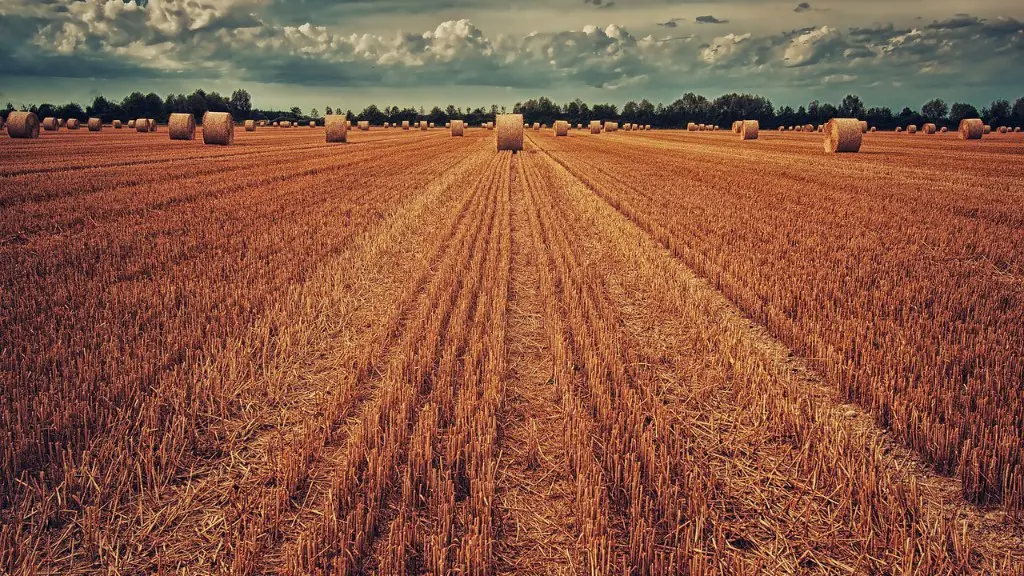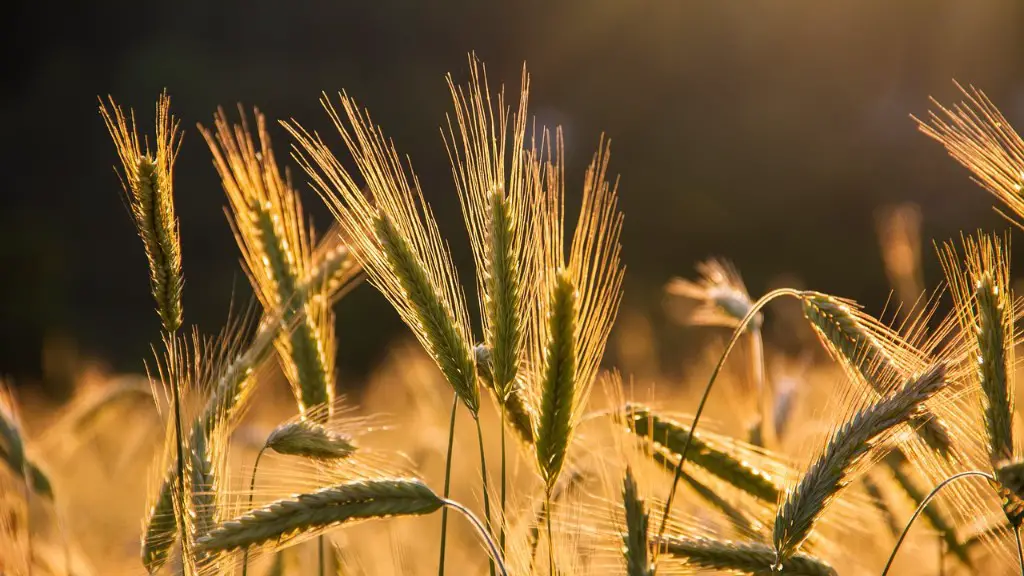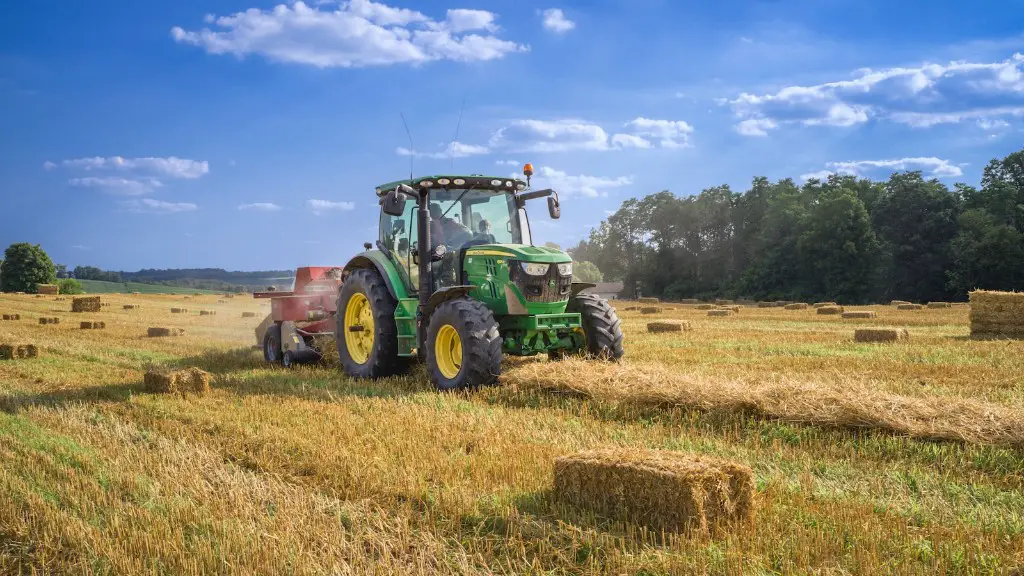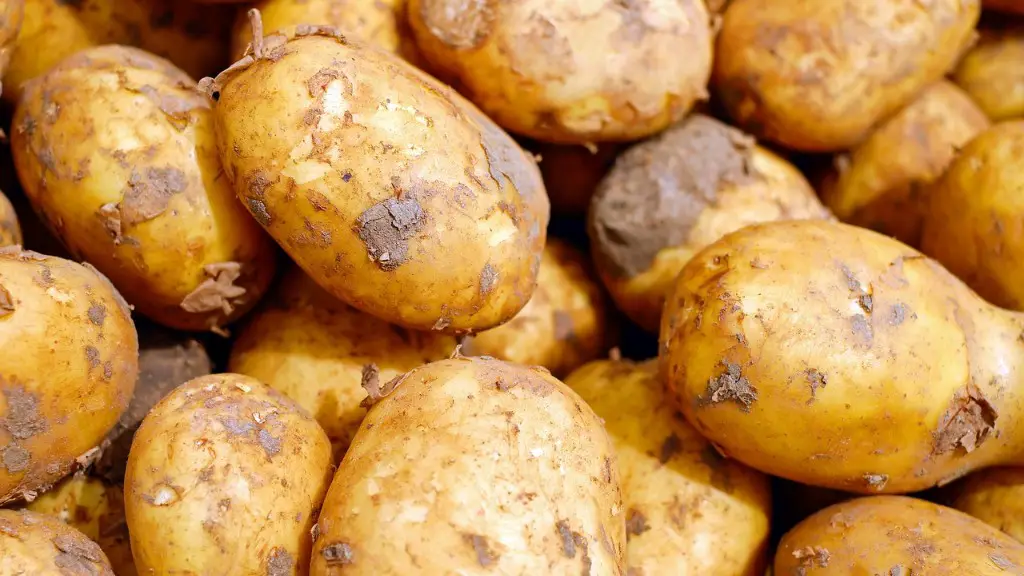In agriculture, Praedial larceny is the theft of crops, poultry, or livestock. It is a growing problem in many countries, causing economic losses for farmers and reducing food security. Praedial larceny is usually committed by people who live near farms and have easy access to the animals or crops. In some cases, the theft is organized and carried out by criminal gangs.
Praedial larceny is a theft from a farm or ranch.
What is meant by the term predial larceny?
Praedial larceny – the theft of agriculture produce – is widely acknowledged in the region as a practice that is negatively impacting the development of the agricultural sector.
This is a huge problem for farmers, as it can result in huge losses of crops and produce. This not only affects the farmers themselves, but also the agricultural industry as a whole.
Praedial larceny is a serious issue that needs to be addressed in order to help the agricultural sector develop.
Praedial larceny is a big problem for Jamaican farmers, causing them to lose billions of dollars every year. This theft hampers the growth and productivity of the agricultural and fisheries sector, and Minister Charles Jr is working to address the issue.
What are the types of agriculture
In less developed regions, people typically rely on subsistence agriculture to get the food they need to survive. This means that they grow enough food to feed themselves and their families, but they don’t have any surplus to sell. Commercial agriculture, on the other hand, is used to produce crops that can be sold on the market. This type of agriculture is typically found in more developed regions, where farmers can take advantage of technology and better transportation infrastructure to get their products to market.
The Unit was established in 2014 and is tasked with investigating and prosecuting cases of agricultural theft island-wide. The Unit is headed by a Senior Superintendent of Police and comprises investigators from both the MoAF and the MNS. In its first year of operation, the Unit recorded a total of 191 arrests.
What is praedial larceny and how does it affect Caribbean farmers?
Praedial larceny is the theft of agriculture produce. While such theft is almost universal, this term is primarily used in the Caribbean region where it is widely acknowledged to be a practice negatively impacting development of agriculture.
Praedial larceny has been identified as a major problem in the Caribbean region for many years. The theft of agriculture produce often results in farmers being unable to sell their products, which in turn impacts the development of the agricultural sector.
There have been various initiatives to address praedial larceny in the Caribbean, including the establishment of the Caribbean Agricultural Security Initiative (CASI) in 2001. CASI is a multi-sectoral approach that seeks to address the problem of praedial larceny through capacity building, awareness raising and economic development.
Despite these initiatives, praedial larceny remains a significant problem in the Caribbean region. In order to effectively address the problem, it is important to continue to build capacity and raise awareness of the issue.
Praedial larceny proliferation is highly driven by the increased demand for supplies in the domestic fresh food chains, where there are many opportunities for praedial activities to become a profitable business with its own set of dynamics in agriculture food distribution. In this context, it is important to understand the factors that contribute to the praedial larceny problem, in order to develop more effective interventions.
The main factors that contribute to praedial larceny are:
– The high value of fresh food commodities in the market
– The lack of security in many fresh food supply chains
– The lack of effective regulation of the fresh food supply chains
To address the praedial larceny problem, it is important to develop interventions that target these underlying factors. For example, interventions that aim to improve security in the fresh food supply chains or that aim to increase the regulation of the fresh food industry are likely to be more effective in reducing praedial larceny than interventions that aim to simply increase the penalties for praedial theft.
What is the sentence for praedial larceny?
It is an offence to sell alcohol to someone under the age of 18 in Jamaica. The penalty for doing so is a fine of up to $20,000 or imprisonment for up to one year.
Theft of agricultural produce is a serious problem in many regions, not just in terms of the financial losses incurred, but also in terms of food security. With the current threats to food security posed by climate change, droughts and other natural disasters, it is more important than ever to address this issue.
How do you solve praedial larceny
Praedial larceny is a serious issue that can have a devastating impact on farmers and rural communities. There are a number of steps that can be taken to prevent praedial larceny, including:
-Record keeping: create a system whereby all farm products are accounted for and tracked. This will help to identify any discrepancies and provide evidence in the event of theft.
-Creating identity: affixing labels or tags to farm products can help to deter thieves and make it easier to identify stolen goods.
-Proper lighting and bushings: well-lit farms and Agricultural areas are less likely to be targeted by thieves.
-Fencing and gates: erecting physical barriers can help to discourage would-be thieves.
-Alarm and warning systems: installing alarms and warning systems can act as a deterrent and also help to alert authorities in the event of a break-in.
-Build meaningful partnerships: developing partnerships with local law enforcement and other community members can help to raise awareness about praedial larceny and also improve the chances of recovering stolen goods.
-Communication: ensuring that all members of the community are aware of the issue of praedial larceny and
Agriculture is a branch of science that deals with cultivation of crops and rearing of animals. It is a vast field that covers production, research and development, and farming. Agriculture is essential for the food security of a nation. It plays a significant role in the economy of a country.
What are the 4 major categories of agriculture?
Agriculture is the science and practice of producing crops and raising livestock. There are four main types of agriculture: shifting cultivation, subsistence farming, pastoralism, and intensive farming.
Shifting cultivation is a form of agriculture in which land is cleared and used for a few years, then abandoned for a period of time before being used again. This cycle is repeated over and over, with each new plot of land being used for a shorter period of time than the last.
Subsistence farming is a type of agriculture in which farmers grow just enough food to feed themselves and their families. There is very little surplus produce, and any surplus is usually sold in local markets.
Pastoralism is a type of agriculture in which farmers raise livestock (such as sheep, cattle, and goats) for meat, milk, and other animal products.
Intensive farming is a type of agriculture in which large amounts of land are used to produce large quantities of food. This type of farming often uses high-tech equipment and methods, such as irrigation and pesticides.
Agriculture is the backbone of many economies, as it not only provides food for people, but also generates income. Agricultural engineering, economics, animal husbandry, horticulture, and agronomy are all important branches of agriculture that play vital roles in economic development. Agricultural products are also used in many industries, such as manufacturing and construction. Agriculture thus plays a significant role in the overall improvement of an economy.
How does praedial larceny affect the agricultural sector
farmers have to buy their produce back from the market, at a higher cost, which means that they are out of pocket and have to make up the difference themselves. This puts them at a disadvantage and makes it harder for them to make a living. The government also loses out on taxes and duties that would have been paid on the agricultural products.
The word “larceny” is a late Middle English word, from the Anglo-Norman word larcin, which means “theft.” Its probable Latin root is latrocinium, which is a derivative of latro, meaning “robber.” Larceny originally referred to mercenaries, but came to mean any kind of robbery over time.
What is the penalty for stealing in Jamaica?
In simple larceny, the force used must be stealing and the punishment must be a felony. The maximum punishment for simple larceny is five years imprisonment with hard labour. On conviction of simple larceny, the offender is liable to imprisonment with hard labour for any term not exceeding seven years.
A praedial servitude is a limited real right constituted in favour of the owner of a property in his capacity as owner. It entitles one property owner to exercise a right on the property of another, or to prohibit another property owner from exercising a normal ownership right.
What is Praedial benefit
A right-of-way is a service, burden, or charge granted for the benefit of a tract of land affecting and exercised against another tract and resembling the easement at common law against a servient tenement in favor of a dominant tenement.
A personal servitude is a right attached to a specific person to use and enjoy another’s property and cannot exist longer than the lifetime of the person in whose favour it was registered. A praedial servitude, on the other hand, is a right that attaches to the property itself (not a person).
Warp Up
Praedial larceny is the deliberate theft of agricultural products. This can include anything from fruits and vegetables to livestock.
Praedial larceny in agriculture is the stealing of farm animals. This crime is often committed by people who are desperate for food or money. The consequences of praedial larceny can be severe, as it can lead to the loss of livelihood for farmers.





